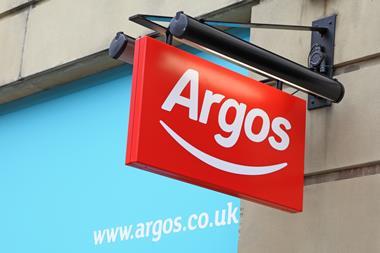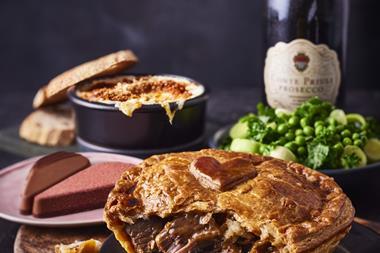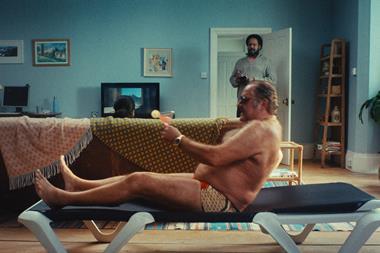The three big players in the Irish retail market Tesco, Dunnes and Superquinn have been shown the yellow card by Consumer Affairs Director Carmel Foley, who has accused them of matching each other's prices.
Foley has asked the Competition Authority to examine surveys showing a price difference of less than 1% between the three on 36 branded items to determine whether further action should be taken. The surveys, covering 50 outlets across the Irish Republic, are conducted by Foley's office every four months in collaboration with the Irish Consumers' Association in a bid to stem rising inflation.
So far they have shown virtually no price difference between the three multiples on the 36 items, from Kerrygold butter to Lyons tea bags, described by Foley as "a remarkable coincidence".
"The supermarkets have a case to answer," she said. "The practice of just matching each other's prices may be anti-competitive."
Her stance provoked an angry response from Superquinn chief Feargal Quinn, an Irish senator. He suggested she was implying collusion between the chains.
He acknowledged carrying out weekly checks on rivals' prices and making matching adjustments where necessary. That, he claimed, was evidence of "the extreme competitiveness" of the Irish market. The ban on below cost selling, he argued, was the reason why there were "no large price gaps".
But Foley, while denying any implication of collusion, questioned why there were no big price variations on fresh meat and vegetables, both of which are excluded from the below-cost selling ban. "Is the main motivation keeping abreast of the competition or a desire to give the consumer good value," she asked.
A spokesman for Tesco also insisted there was "a high level of competition".
"The survey only incorporates a selection of branded products," he said. "A lot of the major price reductions we have introduced have been our own label products, where there is a greater flexibility in pricing."
The final word on the controversy rests with the Competition Authority, which recently took Irish farmers to court in defence of the multiples' right to sell cut-price milk.
{{NEWS }}
Close menu
- Home
- Retail & Wholesale
-
Products & Suppliers
- Back to parent navigation item
- Products & Suppliers
-
Product Categories:
- Back to parent navigation item
- Product Categories:
- Alcoholic drinks
- Bakery
- Cereals & breakfast
- Cheese
- Chicken & poultry
- Chocolate
- Confectionery
- Crisps, nuts & snacks
- Dairy
- Fish
- Fresh produce
- Frozen
- Household
- Meat
- Own Label
- Sauces & condiments
- Seasonal
- Soft drinks
- Vaping
- Vegan & plant-based
- World foods
- Suppliers
- People
- Reports & Data
-
Topics A-Z
- Back to parent navigation item
- Topics A-Z
-
Popular topics:
- Back to parent navigation item
- Popular topics:
- Cost of living crisis
- Crime
- Deposit Return Schemes
- Finance
- Government & Regulation
- Health
- Inflation
- Loyalty
- Marketing
- Mergers & Acquisitions
- New Product Development
- Sourcing
- Supply chain
- Sustainability & environment
- Technology
- Ultra Processed Foods
- Vaping
- A-Z all topics
- Content by type:
- Events
- Ask iA (beta)
- Subscribe now
Sign in to comment on this article
Not logged in before? Register for FREE guest access today.
You will be able to:
- Read more stories
- Receive daily newsletters
- Comment on stories
Advert



















No comments yet